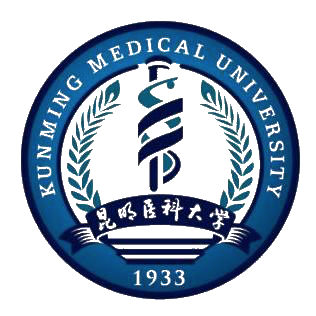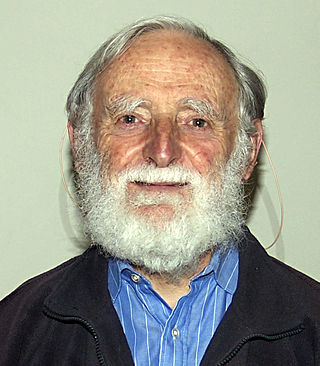Biography
Dennis Razis was born in Argostoli, Kefallonia, Greece, the last of seven children to a middle-class family engaged in trade and agriculture. His father was a merchant and landowner. Before the Second World War, Kefallonia had a rich cultural heritage with distinct music and popular interest in theatre and opera, which the whole family attended regularly. However he was expected to work in his father’s store while he attended school. He finished high school in 1941, at the time of the Italian occupation. He and his older siblings were involved in the popular resistance.
Razis studied medicine in the University of Athens, graduating in 1948. This was a difficult period for Greece, when occupation and economic collapse were followed, after the war, by protracted and vicious civil war. This period left an indelible mark on the young medical student who still remembers that on the black market a single injection of Penicillin cost one gold sovereign, an enormous sum at the time.
Immediately after graduation he was drafted in the army and served for 3½ years as a physician in Military Hospitals attached to frontline units engaged in fighting. After the army he served at Evangelismos Hospital in Athens, as a resident and was granted, after exams, the specialty of Internal Medicine.
Oncology in Greece
In 1954 he travelled to USA, where he worked for the following seven years, in the clinical and research Departments of Internal Medicine and Medical Oncology in leading hospitals such as Illinois Research and Educational Hospital, Cook Country Hospital – in Chicago, Ill., and Memorial Sloan-Kettering Cancer Center and Roswell Park Memorial Hospital in New York and Buffalo, NY. respectively.
In 1961 he returned to pioneer modernizing Medical Oncology in Greece. He started working as a Scientific Advisor to the newly established Greek Cancer Society and consequently, with a group of U.S. trained physicians, he led the organization of the Cancer Institute of Piraeus where he served as President of the Scientific Committee, member of the Board of Directors, and Director of the First Medical Oncology Clinic in Greece.
He was instrumental in creating the environment for training a considerable number of Greek Medical Oncologists at the Cancer Institute of Piraeus. He also promoted clinical cancer research transferring much of the knowledge he acquired in the US to a new generation of doctors who went on to spread the oncology specialty in universities and public hospitals.
After socialization of Medicine, he joined Hygeia, the leading private hospital where he founded the first Medical Oncology Department in the private sector. Over the years, he served as President of the Scientific Committee and President of the Board of Directors. He is also credited with organizing the first Ethics Committee in a private hospital in Greece.
The Delphi Society
Razis has always maintained a keen interest in the environment as well as a deep Concern for increased population of the earth, which resulted from the rising standards of hygiene as well as advances in medicine, without the corresponding adjustment of the reproductive rate. He became increasingly worried about the possibilities of catastrophic and irreversible damage to the environment, what became known as the sixth mass extinction of life of earth. He founded the Delphi Society of which he presides since 1995. The society is concerned with the biological world view of human behavior and the current issues of modern humanism.
The Delphi Society’s goals are embodied in The Delphi Declaration which aimed at contributing effectively to the principal issues confronting human kind today which are largely the prevention of global ecological disaster and the Creation of an environment supportive of peace and progress for all human beings.
The Delphi Society organized two Interdisciplinary International Congresses with the participation of prominent Scientists and Nobel Laureates. Since 1996 Delphi Society organized Monthly scientific meetings in Athens on topics related to the social and ecological crises that threaten life on the planet with the 6th mass extinction.

Adamos Adamou is a Cypriot politician and former Member of the European Parliament (MEP) for the Progressive Party of Working People, sitting with the European United Left–Nordic Green Left group from 2004 to 2009. He sat on the European Parliament's Committee on the Environment, Public Health and Food Safety. He did not stand for reelection in the 2009 European elections.

Edward Donnall "Don" Thomas was an American physician, professor emeritus at the University of Washington, and director emeritus of the clinical research division at the Fred Hutchinson Cancer Research Center. In 1990 he shared the Nobel Prize in Physiology or Medicine with Joseph E. Murray for the development of cell and organ transplantation. Thomas and his wife and research partner Dottie Thomas developed bone marrow transplantation as a treatment for leukemia.

The Regional Cancer Centre (RCC) at Thiruvananthapuram is a cancer care hospital and research centre. RCC was established in 1981 by the Government of Kerala and the Government of India. It is located in the Thiruvananthapuram Medical College campus in Thiruvananthapuram, the capital city of the state of Kerala. It was established as an expansion of the Radiation Therapy / Radiotherapy department of Medical College Trivandrum. It is a tertiary care center for the managements of all types of cancers. The clinics are mainly on Haematology, Lymphoreticular, soft tissue, bone, head and neck, breast, CNS, gynaecological, urinary, chest, gastro, paediatric oncology and thyroid.

Josep Baselga i Torres, known in Spanish as José Baselga, was a Spanish medical oncologist and researcher focused on the development of novel molecular targeted agents, with a special emphasis in breast cancer. Through his career he was associated with the Memorial Sloan Kettering Cancer Center, Vall d'Hebron Institute of Oncology, and the Massachusetts General Hospital in their hematology and oncology divisions. He led the development of the breast cancer treatment Herceptin, a monoclonal antibody, that targets the HER2 protein, which is impacted in aggressive breast cancers.
William S. Breitbart, FAPM, is an American psychiatrist in Psychosomatic Medicine, Psycho-oncology, and Palliative Care. He is the Jimmie C Holland Chair in Psychiatric Oncology, and the Chief of the Psychiatry Service, Department of Psychiatry and Behavioral Sciences, Memorial Sloan-Kettering Cancer Center, He is a Professor of Clinical Psychiatry at Weill Medical College of Cornell University. He was president of the Academy of Psychosomatic Medicine, and the Editor-in-Chief of Palliative and Supportive Care.

John Gordon McVie was an international authority on the treatment and research of cancer. He wrote over 350 peer-reviewed articles, editorials and books. McVie was born in Glasgow, Scotland and died of non-Hodgkin lymphona and COVID-19 in Bristol, England.

Kunming Medical University, previously known as Kunming Medical College, is a medical school located in Kunming City, Yunnan Province, China.
Dennis Joseph Slamon, is an American oncologist and chief of the division of Hematology-Oncology at UCLA. He is best known for his work identifying the HER2/neu oncogene that is amplified in 25–33% of breast cancer patients and the resulting treatment trastuzumab.

Oncology is a branch of medicine that deals with the study, treatment, diagnosis, and prevention of cancer. A medical professional who practices oncology is an oncologist. The name's etymological origin is the Greek word ὄγκος (ónkos), meaning "tumor", "volume" or "mass". Oncology is concerned with:

Edison T. Liu is an American chemist who is the former president and CEO of The Jackson Laboratory, and the former director of its NCI-designated Cancer Center (2012-2021). Before joining The Jackson Laboratory, he was the founding executive director of the Genome Institute of Singapore (GIS), chairman of the board of the Health Sciences Authority, and president of the Human Genome Organization (HUGO) (2007-2013). As the executive director of the GIS, he brought the institution to international prominence as one of the most productive genomics institutions in the world.
Dionysios (Denis) Ikkos was a Greek physician who trained in Endocrinology at Karolinska Hospital, Stockholm with Rolf Luft and co-described the Luft-Ikkos mitochondrial syndrome. He pioneered the Department of Endocrinology and Metabolism in Evangelismos Hospital, Athens, where he distinguished himself in clinical practice, research and teaching, and was a founding member of the Hellenic (Greek) Endocrine Society which honours his contribution with the annual Dionysios Ikkos Memorial Lecture. He was an early advocate and supported the establishment of General Practice/ Family Medicine as a medical specialty in Greece. The Hellenic (Greek) Association of General Practice also honours his contribution with the Dionysios Ikkos prize, the highest prize awarded for a presentation in the association's annual congress. Dionysios Ikkos was married to Danae Ikkou- Papadimitriou, a distinguished Paediatric Cardiologist and pioneer of her specialty in Greece.
Eric P. Winer is a medical oncologist and clinical researcher specializing in breast cancer. He is director of Yale Cancer Center and president and physician-in-chief of Smilow Cancer Hospital Yale New Haven Health System, effective February 1, 2022. He also is Deputy Dean for Cancer Research at Yale School of Medicine. From 1997 to 2021, he was the Chief of the Breast Oncology Program at Dana–Farber Cancer Institute in Boston, Massachusetts. Beginning in 2013, he held a range of institutional roles at Dana-Farber, including Chief of Clinical Development, the Thompson Chair in Breast Cancer Research and Director of the Dana-Farber/Harvard SPORE in Breast Cancer. He also served as a Professor of Medicine at Harvard Medical School. He was president of the American Society of Clinical Oncology (ASCO) 2022-2023 and became Chair of the Board in mid-June 2023. His career has been focused on breast cancer treatment and research.

Dimitrios Trichopoulos, was a Mediterranean Diet expert and tobacco harms researcher. He was Vincent L. Gregory Professor of Cancer Prevention and Professor of Epidemiology, and a past chair of the Department of Epidemiology, in the Harvard School of Public Health in Boston.

Demetrios A. Spandidos is a Greek virologist and cancer researcher. He is an emeritus professor at the University of Crete where he was professor of virology from 1989 till 2015. He is also the founder of Spandidos Publications and the editor-in-chief of all eight of its journals.

Alan Stuart Coates is an Australian professor of clinical oncology, medical researcher and administrator. He was the inaugural CEO of the Cancer Council Australia (1998–2006), former president of the Clinical Oncological Society of Australia (COSA), and co-chair of the St. Gallen International Breast Cancer Conference. He was also the first non-American to be elected to the board of directors of the American Society of Clinical Oncology.
Professor Petros Kokkalis was a distinguished professor of Medicine in the University of Athens has been one of the leading figures of Medicine in pre WWII Greece, introducing pioneering methods in thoracic surgery and neurosurgery. His main medical achievements include the introduction of thoracoplasty in Greece and removal of the phrenic nerve for the treatment of tuberculosis, as well as the first pneumonectomy with the Tourniquet method and the first pericardiectomy for the release of compressive pericarditis.

Alexander Polycleitos Cawadias FRCP OBE was a Greek physician who worked mainly in England. He was an advocate of neo-Hippocratism, holistic medicine, and homeopathy. He argued in his book Hermaphroditos the Human Intersex (1943) that human gender was a continuum and intersexuality a normal phenomenon. He denied there was such a thing as a true hermaphrodite and saw all humans as somewhere between male and female.

Orestes Manousos, was a Greek gastroenterologist and Professor of Medicine at the University of Crete. He was Director of the First Gastroenterology Clinic of the Evangelismos Hospital (1977-1985), President of the Hellenic Society of Gastroenterology (1981-1982), founding member and first President of the Mediterranean Medical Society (1989), founding member and first President of the Hellenic Society for the Study of Helicobacter Pylori (1996).












